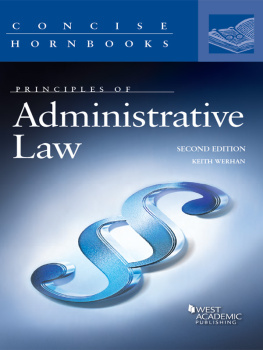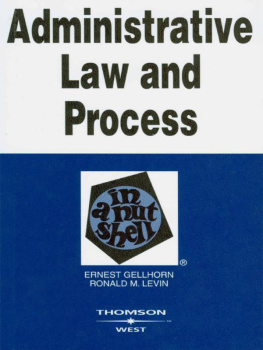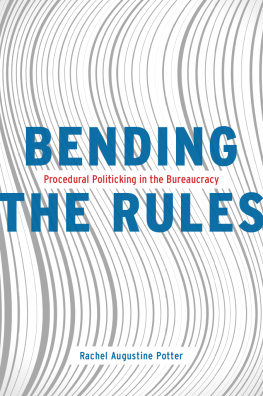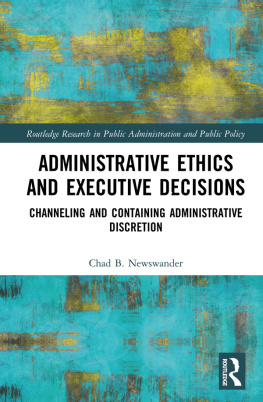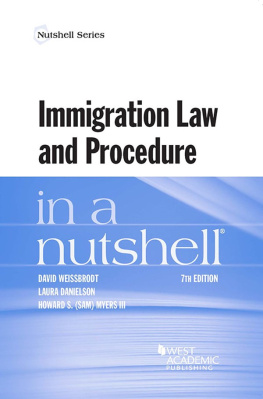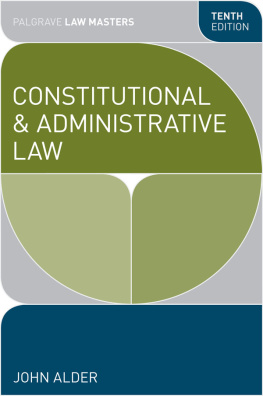Landmarks
Page list

WEST ACADEMIC PUBLISHINGS
LAW SCHOOL ADVISORY BOARD
_________
JESSE H. CHOPER
Professor of Law and Dean Emeritus,
University of California, Berkeley
JOSHUA DRESSLER
Professor of Law, Michael E. Moritz College of Law,
The Ohio State University
YALE KAMISAR
Professor of Law Emeritus, University of San Diego
Professor of Law Emeritus, University of Michigan
MARY KAY KANE
Professor of Law, Chancellor and Dean Emeritus,
University of California,
Hastings College of the Law
LARRY D. KRAMER
President, William and Flora Hewlett Foundation
JONATHAN R. MACEY
Professor of Law, Yale Law School
ARTHUR R. MILLER
University Professor, New York University
Formerly Bruce Bromley Professor of Law, Harvard University
GRANT S. NELSON
Professor of Law, Pepperdine University
Professor of Law Emeritus, University of California, Los Angeles
A. BENJAMIN SPENCER
Professor of Law, University of Virginia School of Law
JAMES J. WHITE
Professor of Law, University of Michigan
i
PRINCIPLES OF ADMINISTRATIVE LAW
Second Edition
by
Keith Werhan
Ashton Phelps Chair in Constitutional Law
Tulane University School of Law
CONCISE HORNBOOK SERIES

Mat #41353327
ii
The publisher is not engaged in rendering legal or other professional advice, and this publication is not a substitute for the advice of an attorney. If you require legal or other expert advice, you should seek the services of a competent attorney or other professional.
Concise Hornbook Series and Westlaw are trademarks registered in the U.S. Patent and Trademark Office.
2008 Thomson/West
2014 LEG, Inc. d/b/a West Academic
444 Cedar Street, Suite 700
St. Paul, MN 55101
1-877-888-1330
Printed in the United States of America
ISBN: 978-0-314-28609-3
iii
For my studentspast, present, and future
v
Preface to the Second Edition
___________
The second edition of this book is similar in intention and content to the original edition. The goal is still to provide a sophisticated yet accessible exposition of the essential principles of administrative law in a manner that will help to ground law students and anyone else who is new to the subject.
There have not been additions or subtractions to core administrative law principles since publication of the first edition, so the basic coverage of the second edition is the same as the first (although I have added new sections where appropriate). No area of law remains static, of course, and the second edition includes all of the significant developments in administrative law since the first edition. The second edition also incorporates the innovations of the Obama Administration regarding government administration.
Just as the courts and other decision-makers have continued to tweak administrative law doctrine and practice, I have taken the opportunity presented by writing a second edition to edit the text of the first edition, hopefully for the better.
On a final note, I would like to express my gratitude to my research assistant, Ashley Bane (Tulane Law School Class of 2014) for her considerable work in helping me to complete the second edition.
KEITH WERHAN
New Orleans, LA
July 2014
vii
Preface to the First Edition
___________
There is a frustrating paradox that clouds the study of administrative law. On one hand, administrative agencies are ubiquitous at every level of government. No institution of government touches our lives as frequently or so pervasively. Every lawyer surely deals with administrative agencies, and thus with administrative law, in some way, at some time, during her or his practice. So do law students who venture into such courses as environmental law, labor law, and communications law.
On the other hand, this eminently practical field of law can be one of the most abstract and elusive subjects in the lawschool curriculum. This abstractness is the product of the ubiquity of administrative agencies. Administrative law principles must be stated abstractly because they must apply to myriad agencies, which come in a variety of shapes and sizes. Each agency has a distinctive history, organizational structure, policy agenda, arsenal of powers, and set of limitations on the exercise of those powers. Because of this diversity, generalizations about administrative agencies are treacherous, and the task of developing meaningful and functional legal principles applying to the full range of agency action is no mean trick. And in addition to accommodating the wide diversity among agencies, administrative law must cope with the considerable variety and complexity of agency decisionmaking processes as well.
Administrative law is challenging for another reason: It is ambitious. The aspiration of administrative law is nothing less than to control the exercise of governmental power within the rule of law. Administrative law, like constitutional law, superimposes a legal framework on an incorrigibly political process. Administrative law and constitutional law thus experience similar difficulties in mediating the uneasy relationship between law and politics in American government.
A final challenge in studying administrative law is that agencies, for all their familiarity, seem like alien creatures under the law. Although agencies do things that resemble what legislatures and courts do, they are decidedly different in makeup, and therefore in outlook, from those more familiar institutions. Agencies seem to inhabit the shadows of the three constitutional branches of government. And yet, understanding administrative law requires at least a basic sense of what administrative agencies are and what they do.
viii
This book is written with the purpose of assisting law students and lawyers in overcoming these difficulties in the study of administrative law. Its goal is to organize and to develop the core components of administrative law in a way that renders this legal system both comprehensible and usable. With that goal in mind, I have discussed throughout the book (1) the historical development of administrative law and the administrative state; (2) the evolution of the essential principles of administrative law, with an emphasis, of course, on current doctrine; and (3) the contemporary controversies in administrative law. I also have included in each chapter diagrams that provide a visual organization of administrative law and the administrative process.
The concise hornbook concept has provided an ideal format to develop the essential principles of administrative law in the manner that I believe is appropriate for the study of this subject. This book covers what I consider to be the core of administrative law. I have attempted throughout the book to examine in an accessible yet sophisticated manner the subject areas and the principal cases that virtually every law school course in administrative law covers. In my 25 years or so of teaching administrative law, I have come to believe that the successful students are those who understand the essentials of the administrative law system. If students understand the logic of that system, as well as the fault lines within the system, they have a usable framework for handling any administrative law problem that may come their way.
In closing, I would like to express my appreciation to the editors at Thomson West for their patience and support when my work on this project was delayed by Hurricane Katrina and its aftermath, and to Emory Law School, which graciously allowed me the use of its facilities to continue work on this book when I washed up in Atlanta after the storm. I also am grateful, as always, to Lo and Ben for their understanding and support. Finally, I would like to thank my assistant, Gail Nelson, for her work in bringing my diagrams to life.

